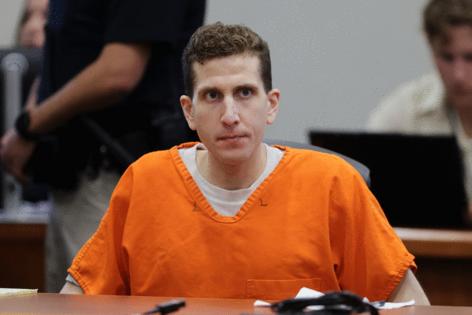Bryan Kohberger waived appeals in his plea deal -- but options remain. What are they?
Published in News & Features
BOISE, Idaho — When Bryan Kohberger was sentenced to four terms of life in prison on July 23 for the killings of four University of Idaho students, the judge and lead prosecutor noted that it would be the last anyone saw or heard from the 30-year-old convicted murderer who had agreed to a plea agreement in the high-profile quadruple stabbing case.
As a condition of the agreement, which protected Kohberger from the death penalty, prosecutors said he waived his right to appeal the four first-degree murder convictions and an additional conviction for felony burglary. But 4th District Court Judge Steven Hippler, who presided over the case, mentioned ahead of the sentencing that not all of Kohberger’s opportunities for appeal had been relinquished with the deal.
In a hearing on July 17 where Hippler lifted a gag order that had been in place in the case since January 2023, the judge mentioned that media should not expect sealed documents to be readily available for weeks or even months after the case concluded.
“I’m unlikely to unseal much until after sentencing and after the appeals period has run,” Hippler said.
The judge added that “the fact that a defendant waives a right to appeal doesn’t mean they don’t have a right to appeal,” but legal experts told the Idaho Statesman those scenarios are exceedingly rare. Here’s what that might look like:
Kohberger appeals right is based in Idaho SCOTUS case
Hippler pointed to an Idaho case that rose to the U.S. Supreme Court to explain why someone like Kohberger, who seemingly waived the right to appeal, would still be able to appeal.
The Ada County judge mentioned Garza v. Idaho, a 2019 case in which an Idaho man had accepted an Alford plea in a case of aggravated assault. An Alford plea acknowledges there is enough evidence to convict, but does not admit guilt. As part of the plea, he waived his right to appeal, but after sentencing asked his lawyers to appeal the conviction. They would not file the appeal because of the waivers.
Garza then filed for post-conviction relief on the grounds of ineffective representation because his counsel would not file his appeal. His case went to the U.S. Supreme Court, where a 6-3 opinion determined that accepting an appeal waiver does not bar someone from all future appeals.
Joshua Ritter, a Los Angeles-based criminal defense attorney and Fox News contributor, told the Idaho Statesman the plea process is done in such a way that defendants must be very clear about understanding their actions.
When Kohberger changed his plea, he was required to confirm that he was not under the influence of any kind of substance, had not been coerced and had full understanding of the charges and their penalties.
“It’s very detailed. It takes a long time. He’s constantly advised. He’s constantly asked for waivers,” Ritter said. “That’s why the judge asked him about four different ways, every question to make sure that (the plea) is knowingly, intelligently and voluntarily given.”
At sentencing, Hippler informed Kohberger that he can file a notice of appeal within 42 days of the filing of the written judgment, but doing so could violate the plea agreement.
Ritter said from a practical standpoint, Kohberger could fill out appeal paperwork and send it to the Court of Appeals, which would file the paperwork. However, he said, the prosecutor’s office would quickly file Kohberger’s waiver with the court, which would then dismiss the appeal.
“If you want to potentially say that he still has the ability to attempt to appeal, I guess that is a way to look at it,” Ritter said. “As far as effectively being able to appeal like a person normally would after being convicted, that no longer exists for him.”
Other opportunities for Kohberger to appeal
Jordan Gross, a professor of law at the University of Idaho’s College of Law, told the Statesman in an interview that appeal waivers typically apply directly to the criminal case, such as judge’s rulings. Kohberger would be most likely to appeal outside of the case itself by filing over issues like ineffective representation or withheld evidence.
Gross said any appeal Kohberger could pursue would have to “call into question the fairness of the process and the integrity” of the case. The chance of success would be slim, she said.
“Ineffective assistance of counsel claims are extraordinarily hard to win,” Gross added. “You have to prove that your attorney failed to do something, they committed some sort of error.”
Gross said if Kohberger were somehow successful in winning an appeal, he would simply be back to the start of a criminal trial — including putting the death penalty back on the table.
“Your prize, such that it is, is a withdrawal of the guilty plea and you start all over again,” she said.
_____
©2025 The Idaho Statesman. Visit idahostatesman.com. Distributed by Tribune Content Agency, LLC.







Comments